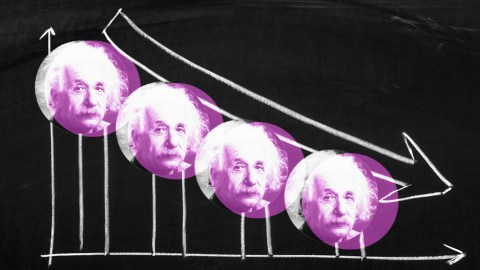For most of history, humans got smarter. That’s now reversing.

There’s a new study out of Norway that indicates our—well, technically, their—IQs are shrinking, to the tune of about seven IQ points per generation.
Scientists from Norway’s Ragnar Frisch Centre for Economic Research analyzed 730,000 IQ tests given to Norwegian men before compulsory military service from 1970 to 2009, and this is their conclusion.
If the trend continues—indeed, if it’s even real—that means about 10 generations from now, we’ll see a slow decline that actually means IQs at the top end will drop from >130 (“Very Superior”),” to
It’s a reversal of what’s known as the Flynn effect, named after the psychologist who first noticed that IQs increased in at least the first part of the 20th century.
There are a host of potential explanations that are still being explored, all the way from environmental problems and diet to lack of exercise and staring at screens.
But one that actually seems a more genuine culprit is this: IQ tests are designed to rely more upon rote memorization whereas schools and even electronic devices used by students rely on the ability to find things via Google and other means, which may indicate there is no real change in intelligence but rather in how younger people learn these days.
However, the scientists Bernt Bratsberg and Ole Rogeberg have written a paper making the strong case that the decrease is environmental (and one of them actually talks about the IQ test possibility).





